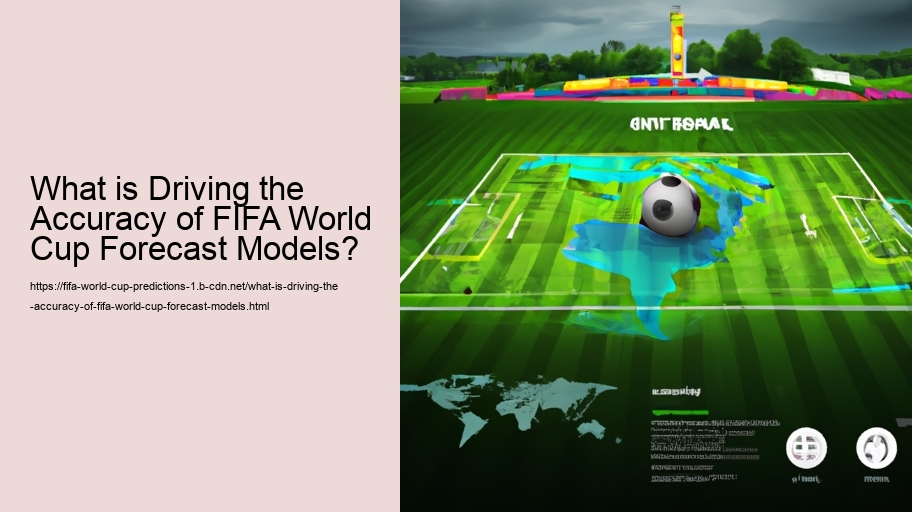The FIFA World Cup is one of the most anticipated sporting events worldwide, captivating millions of fans and drawing intense scrutiny from analysts and statisticians alike. Find out more about FIFA World Cup Predictions here.. The accuracy of FIFA World Cup forecast models is a subject of immense interest, as it not only fuels fan discussions but also influences betting markets and team strategies. Understanding what drives the precision of these models requires an in-depth look at several key factors: data quality, model sophistication, expert input, and real-time adaptability.
First and foremost, the quality and breadth of data are fundamental to any predictive model's accuracy. Historical match data provides a treasure trove of information that can be mined for patterns and trends. This includes not just win-loss records but also detailed statistics such as goals scored, possession percentages, player injuries, weather conditions during matches, and even referee decisions. Advanced metrics like Expected Goals (xG) offer deeper insights into a team's offensive efficiency by evaluating the quality rather than merely the quantity of shots taken. High-quality datasets enable models to draw more accurate correlations between variables, thus improving their predictive power.
In tandem with robust data is the sophistication of the algorithms used in these models. Traditional statistical methods like linear regression have given way to more complex machine learning techniques such as neural networks, random forests, and ensemble methods. These advanced algorithms can handle vast amounts of data with numerous interacting variables while identifying non-linear relationships that simpler techniques might miss. Moreover, machine learning models can be trained iteratively to improve their performance over time by constantly updating themselves based on new inputs.
Expert input remains another crucial element driving forecast accuracy. While machines excel at processing large datasets at incredible speeds, human expertise offers nuanced understanding that pure numbers may not capture-such as team morale after a key player's injury or strategic changes made by coaching staff following recent performances. Combining algorithmic predictions with expert judgments creates a hybrid approach that often yields superior results compared to relying solely on automated systems.
Real-time adaptability is yet another critical factor impacting model accuracy during an ongoing tournament like the FIFA World Cup. Football is inherently unpredictable; unexpected events such as red cards or sudden tactical shifts can dramatically alter game outcomes. Modern forecasting models increasingly incorporate live updates during matches through APIs (Application Programming Interfaces) which feed real-time data directly into prediction engines allowing them to adjust probabilities dynamically based on current conditions within games themselves thereby providing up-to-the-minute forecasts reflecting latest developments accurately
Furthermore psychological aspects should not be overlooked either Players' mental states influenced by pressure stakes associated with world cup fixtures could affect their performances Teams might perform differently under high-stress situations versus less significant friendlies incorporating psychological indicators further refines overall predictiveness.
Lastly communal wisdom sometimes referred collective intelligence plays role crowd-sourced platforms gather public opinions aggregate sentiments offering unique perspective mass anticipation which surprisingly turns out fairly reliable predictor when aggregated appropriately hence reinforcing existing scientific methodologies validating hypotheses derived therefrom
In conclusion achieving high degree fidelity predicting outcomes prestigious event multifaceted endeavor involves blending high-quality historical contemporary live datasets deploying sophisticated modeling approaches integrating invaluable human expertise continuously adapting dynamic evolving scenarios leveraging collective intelligence all elements collectively contribute enhancing robustness reliability football world cup forecasting ultimately enriches audiences experience heightening engagement thrilling journey unfolds
